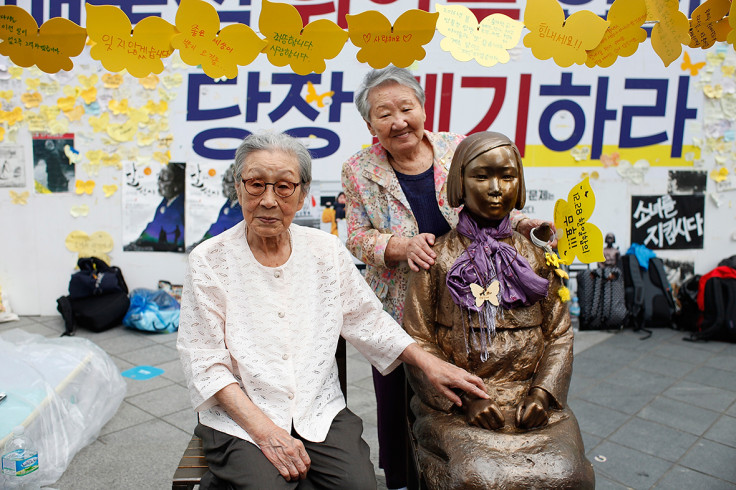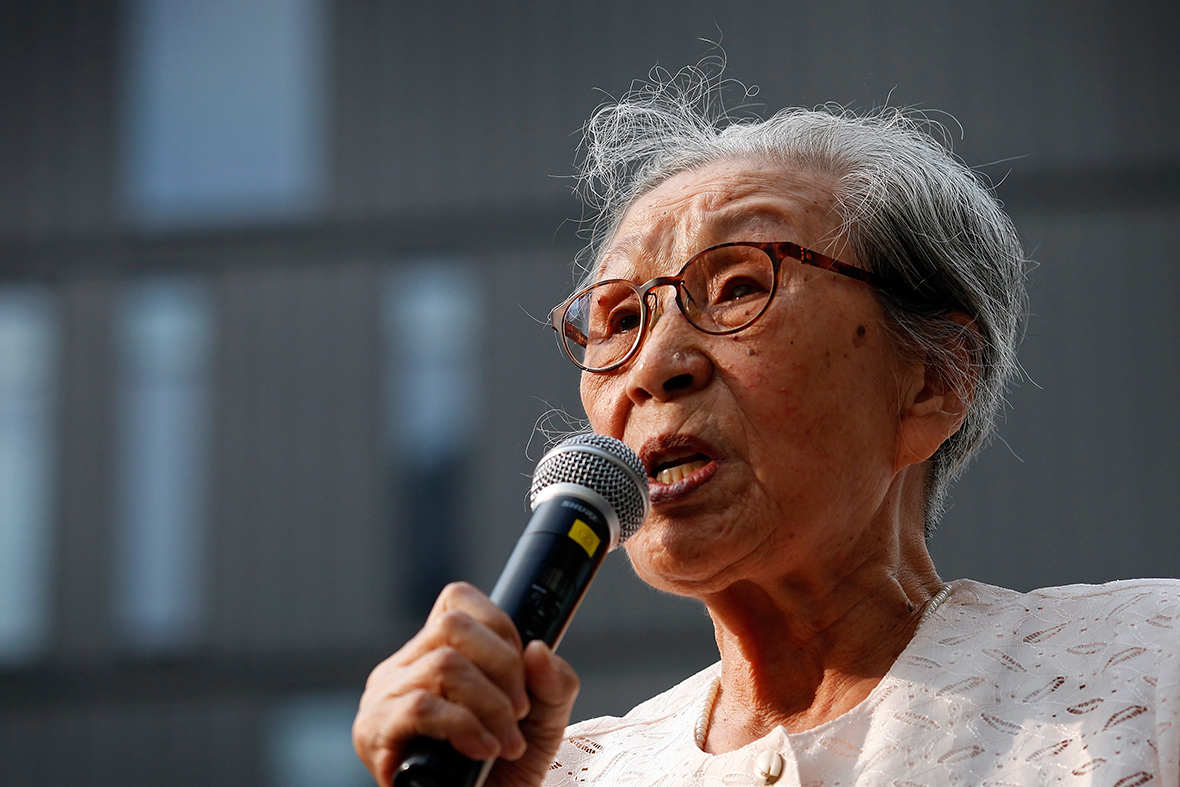Comfort Women: Former World War Two sex slaves demand Japan admits legal responsibility
Comfort women were forced into sexual slavery by Japanese military before and during the Second World War.
A memorial has been held in Seoul, South Korea, to mark the 25th anniversary of the first "Comfort Women" testimony given by former comfort woman, Kim Hak-sun. She was the first woman to come forward about the plight of young women and girls who were forced into sexual slavery by the Japanese military before and during the Second World War, in what has been recognised as one of the biggest cases of human trafficking in the 20th century.

Over 200,000 were enslaved by the Japanese Imperial Military in occupied territories from the early 1930s to the end of the Second World War. The majority were under 20, many as young as 12. The women enslaved were Korean, Chinese, Taiwanese, Malaysian, Indonesian, Dutch, East Timorese and Japanese. Amnesty International say women from Thailand, Vietnam, Burma and the United States were also enslaved.





It is believed that the first "comfort station" was established in the Japanese concession in Shanghai in 1932. Women who lived under the Imperial Japanese rule, responded to "work placements", apparently available in factories, hospitals and restaurants, unaware that they were being trafficked into sexual slavery. Once "recruited", they were transferred to comfort stations in both their nation and overseas. Many young girls were sold off by desperate parents, while other reports, revealed decades later, state that some were abducted from their homes.



Gil Won-ok, 89, now lives at Woorijip, a comfort women survivors' shelter in Yeonnam-dong in Seoul. In 1937, Gil was drafted against her will as a military sex slave at the age of 13 in Japanese-occupied Korea . She caught syphilis and developed tumours. A Japanese military doctor removed her uterus, leaving her unable to have children.
Kim Bok-dong, 91, also a resident at Woorijip, was taken in 1941 when she was 15. She described how a Japanese police officer and soldiers arrived at her rural home, and demanded she come with them to work at a garment factory. "My mother protested: 'She is so little, what can she do?' But they said I could learn, so it should be all right, which is how I ended up going, thinking it'd be just for a few days." Kim was held at military brothels in southern China, Indonesia and Singapore and was gone for seven years.




During the 71st anniversary of South Korea's liberation from Japanese colonial rule, South Korean President Park Geun-Hye called for a "future-oriented" relationship with Japan, even as a group of Seoul lawmakers dredged up a long-running territorial dispute by visiting some islets claimed by Tokyo.
Japanese prime minister Shinzo Abe finally issued a formal apology over the comfort women in December 2015. But Kim Bok-dong has urged him to admit legal responsibility. Talks between ministers of Japan and South Korea are in progress, as they discuss how the 1 billion yen (£7.7 million, $9.8 million), which was contributed by Japan, will be spent for the Reconciliation and Healing Foundation for the surviving Comfort Women during WWII and the Korean War.




© Copyright IBTimes 2025. All rights reserved.




















